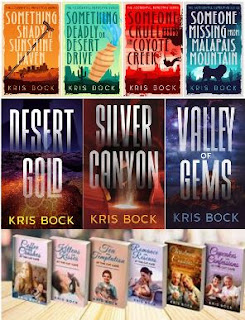.jpg)
Conflict comes from the interaction between character and plot. Let's look more closely at character.
Six basic human needs influence character:
Growth (working toward a personal goal)
Contribution (feeling needed, worthwhile)
Security (knowing the future)
Change (desire for variety, excitement)
Connection (feeling part of a group)
Independence (personal identity and freedom)
Which of these are most important to your main character? Create conflict by setting up situations which oppose that person’s needs.
 |
| Who are the best characters for ghost hunting? |
Come up with a challenge – a difficult situation for someone. This can be anything from facing the first day of school to wanting to make a sports team to solving a crime to fighting zombies.
Then ask, What kind of person would have the most trouble in that situation? Plan or write a story about that character in that situation.
Exercise—Write a story, starting with character.
Write a brief character sketch, covering basics such as gender, age, personality characteristics – introvert/ extrovert, optimist/ pessimist, etc. – with a few likes and dislikes. You can base this on someone you know.
How would they define or describe themselves? (“I always…I never…I’m the kind of person who….”)
 |
| What happens when a shy, sheltered girl goes on a quest? |
• If these statements are false, a situation that exposes the delusion will create conflict. For example, if someone sees himself as courageous, but isn't really, a situation that requires courage will be especially painful because it shakes up his view of himself.
So, what situation will most challenge this character? Summarize or write a story about that character in that situation.
You know you need both an interesting character and a strong plot to make a good story. As you develop an idea, think about how your character and plot interact, and design your character for your plot. As you write the story, work back and forth between plot and character.
Look at your work in progress. What is the problem? Why is it important? Why is it difficult?
Given those answers, is your character the right character for that situation? Could you give your character different needs or desires, to make the situation more difficult for him or her?
.jpg)
Advanced Plotting—Keep Those Pages Turning
Learn advanced techniques that will make a decent plot dynamic. Start with a “grab you by the throat” opening, pack the plot full, maximize your pacing, and use cliffhanger chapter endings to drive the story forward.
Take this online course at your own pace. It includes six videos plus handouts with notes and more resources. Get Advanced Plotting here.
Please note: If you are new to EzyCourse, you will need to sign up and get a password first. Then return to the course page to enroll and pay. You will not have access to the course until you "Complete Purchase."
You Can Write for Children
Learn about children’s publishing—opportunities and challenges, genres, age ranges, book and magazine markets, and resources to keep you going. Watch this three-session video course at your own pace. Get You Can Write for Children here.
Sign up for the Kris Bock Mystery and Romance newsletter and get a free Accidental Detective short story and bonus material, a free 30-page sweet romance set in the world of the Furrever Friends cat café, and a printable copy of the recipes mentioned in the cat café novels.



No comments:
Post a Comment